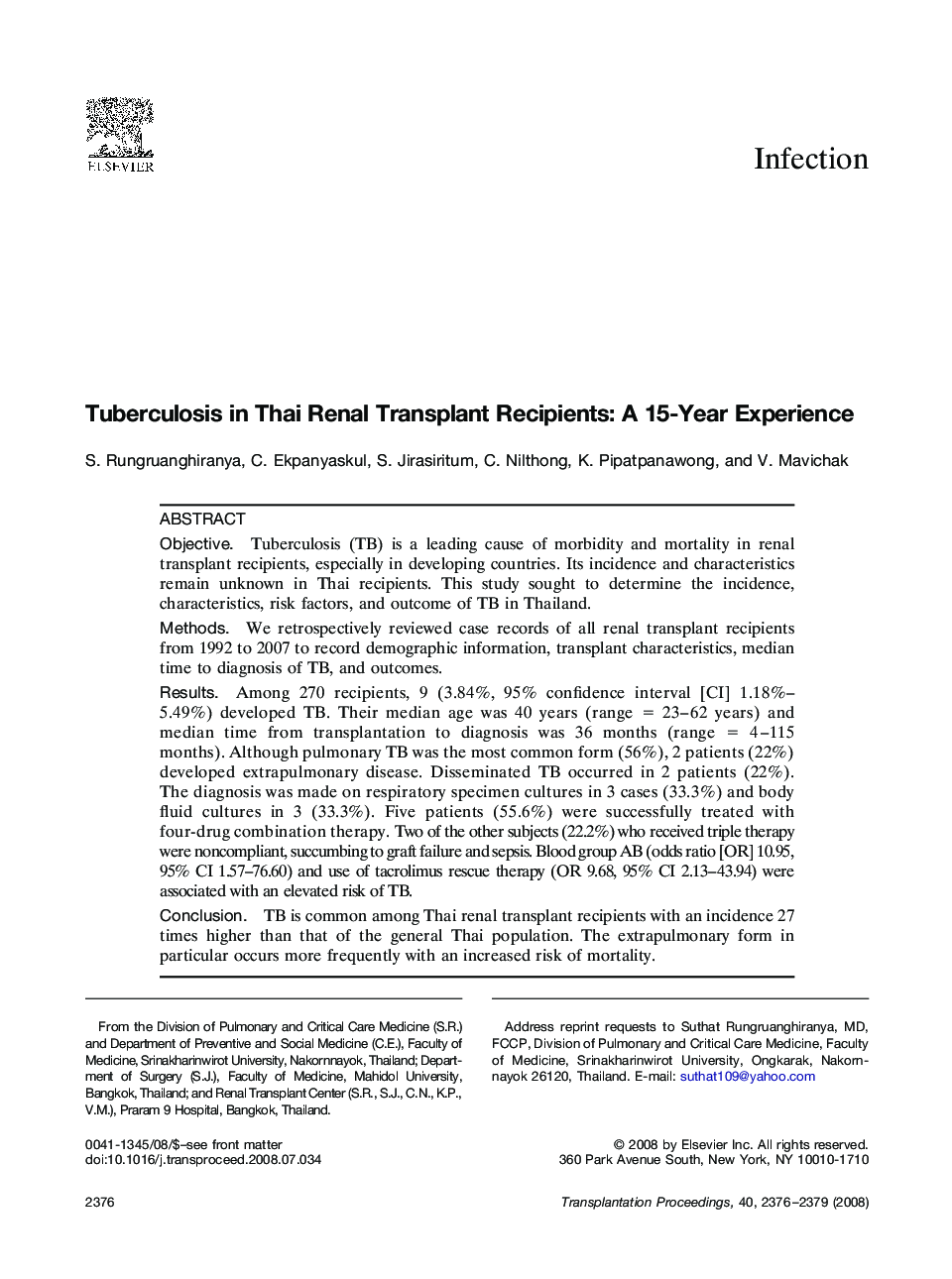| Article ID | Journal | Published Year | Pages | File Type |
|---|---|---|---|---|
| 4262519 | Transplantation Proceedings | 2008 | 4 Pages |
ObjectiveTuberculosis (TB) is a leading cause of morbidity and mortality in renal transplant recipients, especially in developing countries. Its incidence and characteristics remain unknown in Thai recipients. This study sought to determine the incidence, characteristics, risk factors, and outcome of TB in Thailand.MethodsWe retrospectively reviewed case records of all renal transplant recipients from 1992 to 2007 to record demographic information, transplant characteristics, median time to diagnosis of TB, and outcomes.ResultsAmong 270 recipients, 9 (3.84%, 95% confidence interval [CI] 1.18%–5.49%) developed TB. Their median age was 40 years (range = 23–62 years) and median time from transplantation to diagnosis was 36 months (range = 4–115 months). Although pulmonary TB was the most common form (56%), 2 patients (22%) developed extrapulmonary disease. Disseminated TB occurred in 2 patients (22%). The diagnosis was made on respiratory specimen cultures in 3 cases (33.3%) and body fluid cultures in 3 (33.3%). Five patients (55.6%) were successfully treated with four-drug combination therapy. Two of the other subjects (22.2%) who received triple therapy were noncompliant, succumbing to graft failure and sepsis. Blood group AB (odds ratio [OR] 10.95, 95% CI 1.57–76.60) and use of tacrolimus rescue therapy (OR 9.68, 95% CI 2.13–43.94) were associated with an elevated risk of TB.ConclusionTB is common among Thai renal transplant recipients with an incidence 27 times higher than that of the general Thai population. The extrapulmonary form in particular occurs more frequently with an increased risk of mortality.
